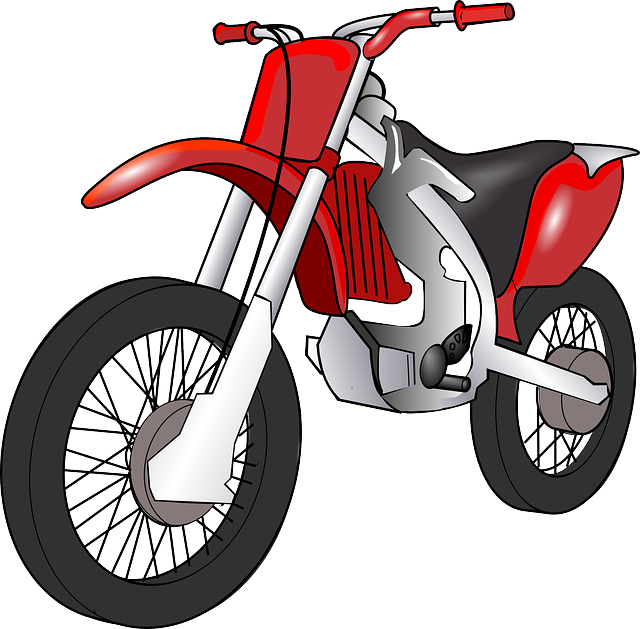When purchasing or selling a moped, it's crucial to understand the legal requirements, which include obtaining the correct licenses or endorsements, registering and insuring your moped according to local laws, and staying aware of the tax implications involved. As a buyer, you should be prepared for sales taxes and as a seller, for potential capital gains taxes upon resale. Regular maintenance is non-negotiable for safety and performance; ensure that all components are functioning correctly, and adhere to state-mandated inspections. A well-maintained moped not only complies with regulations but also offers an environmentally friendly and economical mode of transportation. Remember to always verify the most current information from official sources regarding licensing, insurance, and local laws specific to mopeds for sale in your area.
Navigating the legal landscape of moped ownership is a journey through a patchwork of regulations, age restrictions, and licensing requirements that vary by state. Whether you’re exploring mopeds for sale or are an existing owner looking to adhere to local laws, this comprehensive guide demystifies the process. From registration and title particulars to understanding emission standards, insurance coverage options, and age-specific safety certificates, we cover all aspects of responsible moped ownership. Additionally, insights into local ordinances, including helmet laws and speed limits, ensure you stay within the legal framework. For those interested in the tax implications of buying or selling a moped, we provide clear guidance. Lastly, maintenance and inspection tips will keep your moped in top condition, ready for the road ahead.
Understanding Moped Legality: A State-by-State Overview

Navigating the legality of mopeds varies significantly across different states in the U.S., making it crucial for potential riders to understand the specific requirements and regulations where they intend to operate these vehicles. Mopeds for sale are available with varying specifications, and it’s essential to ensure that the chosen model aligns with state laws. Typically, a moped is defined as a two or three-wheeled vehicle that has pedals and is capable of going at least 20 miles per hour on level ground and powered solely by human muscle. However, this definition can differ, and additional criteria such as engine size, electric power capabilities, and speed may determine if a vehicle is classified as a moped.
States like California, Florida, and Texas have distinct legal frameworks governing mopeds. For instance, in California, a moped must have an automatic transmission, be equipped with a functioning bell or horn, and be capable of a maximum speed of 30 miles per hour. In contrast, Florida’s definition is more accommodating, allowing both foot-to-floor and pedalless mopeds that can reach speeds up to 25-30 miles per hour without motor assistance. It’s important for consumers looking at mopeds for sale to research their state’s regulations thoroughly. This includes understanding if a helmet is required, what age riders are permitted, whether registration and insurance are mandatory, and how moped operation is treated in terms of road rights and responsibilities. By doing so, potential moped owners can ensure compliance with local laws and enjoy the convenience and benefits these vehicles offer.
Moped Registration and Title Requirements Across Different States

When exploring the moped market, understanding the registration and titling requirements in your state is crucial for legal compliance. Mopeds, a popular mode of transportation and often found among mopeds for sale listings, are defined differently across various states. Typically, a moped is classified by its engine size (50cc or less) and maximum speed (30 miles per hour or less). In some states, mopeds are treated as bicycles and may not require registration or titling, while in others, they are categorized as motor vehicles and must adhere to specific regulations.
For instance, in California, a moped falls under the category of ‘bicycle’ and does not need registration when new, but an owner must register it upon turning 16 years old. In contrast, Florida mandates all mopeds be registered and titled, regardless of their age or use. The registration process often involves submitting proof of ownership, such as a bill of sale from the moped for sale listing that led to your purchase, along with payment of the necessary fees. Title requirements are equally varied; in some states like New York, mopeds do not require titles, while in Texas, they do. Owners must familiarize themselves with their state’s specific regulations before purchasing or registering a moped. It’s important to check local Department of Motor Vehicles (DMV) guidelines or equivalent state agencies to navigate these requirements accurately. Whether you’re buying from mopeds for sale advertisements or directly from a dealer, understanding the legalities will ensure a smooth and compliant ownership experience.
Age Restrictions and Safety Certificates for New Moped Owners

When exploring mopeds for sale, it’s crucial for potential owners to be aware of age restrictions and safety certificate requirements. Prospective riders must meet a minimum age threshold as mandated by state or local laws. This age varies by jurisdiction but often ranges from 16 to 21 years old. The specific age is determined by the legal definition of a moped, which typically involves both motor size and speed limitations. Additionally, upon purchase, new moped owners are required to obtain a safety certificate, sometimes referred to as an inspection sticker or emissions test pass. This certificate confirms that the vehicle meets all necessary safety and environmental standards. The process for obtaining this certificate usually involves a thorough examination by authorized personnel who assess components such as brakes, lights, tires, and other critical elements. Ensuring compliance with these regulations is not only a legal obligation but also a vital step in ensuring the safety of both the rider and other road users. Therefore, before finalizing a purchase from mopeds for sale listings, it’s imperative to familiarize oneself with the specific age requirements and the procedure for acquiring a safety certificate in one’s locality. This due diligence not only adheres to legal stipulations but also contributes to a safer riding experience.
Insurance Coverage Options Specific to Mopeds

When exploring mopeds for sale, understanding the insurance coverage options available is a crucial aspect of responsible ownership. Mopeds, often seen as an eco-friendly and cost-effective mode of transportation, require insurance to protect both the rider and any passengers in the event of an accident or theft. Insurance policies tailored for mopeds may vary by region due to different legal requirements, but they typically include options such as bodily injury liability, property damage liability, comprehensive coverage, collision coverage, uninsured/underinsured motorist coverage, and personal injury protection (PIP). It’s imperative to assess the specific laws in your area, as some jurisdictions mandate certain types of coverage. For instance, bodily injury liability covers medical costs for injuries you cause to others, while property damage liability addresses the damages you might inflict on another’s property. Comprehensive and collision coverage can help offset the cost of repairing or replacing your moped if it’s damaged in an accident with an object or if it’s stolen or vandalized. Uninsured/underinsured motorist coverage provides protection when you’re involved in an accident with a driver who lacks adequate insurance. PIP, available in some states, covers medical expenses for the rider, regardless of fault, which is particularly valuable given the exposed nature of moped riding. When shopping for mopeds for sale, it’s advisable to have this coverage in place before taking your new moped out on public roads. Always ensure you’re fully informed about the insurance requirements and options available for mopeds, as this will not only comply with legal obligations but also offer peace of mind while enjoying the ride.
Emission Standards and Eco-friendly mopeds on the Market

Navigating the modern marketplace, consumers have an array of eco-conscious options when it comes to mopeds for sale. These include models designed with stringent emission standards at their core. Manufacturers are increasingly focusing on reducing the environmental impact of their products, leading to a rise in the availability of mopeds that comply with current emission regulations. These environmentally friendly mopeds utilize advanced technologies such as electric motors and energy-efficient battery systems, significantly lowering harmful exhaust emissions compared to their gasoline-powered counterparts. As a result, they offer a cleaner, quieter ride while maintaining the convenience and efficiency that make mopeds an attractive transportation alternative.
The adoption of emission standards for mopeds is a testament to the industry’s commitment to sustainability. These standards not only protect the environment but also set a precedent for future vehicle development. Mopeds for sale that meet these criteria are often equipped with features like regenerative braking, which further enhances their eco-friendly nature by recapturing energy otherwise lost during braking. Additionally, they may incorporate lightweight materials and aerodynamic designs to improve performance and efficiency. As such, consumers can confidently choose from a variety of mopeds that not only adhere to these important environmental standards but also provide a reliable and sustainable mode of transportation.
Navigating Local Ordinances: Speed Limits, Helmet Laws, and Beyond

When considering the purchase of a moped, it’s crucial to be well-versed in local ordinances that govern their use. These regulations can include speed limits specific to mopeds, mandatory helmet laws, and other safety requirements that vary by jurisdiction. For instance, many areas stipulate that mopeds must adhere to a maximum speed limit, often lower than standard vehicular speeds, reflecting the balance between efficiency and safety. This not only ensures the safety of riders but also aligns with the community’s traffic flow and pedestrian safety standards. Helmet laws are another aspect to consider; some regions mandate helmets for all moped riders, while others have less stringent requirements based on age or certain licensing categories. Beyond these legal requirements, prudent riders will also familiarize themselves with local traffic signals, right-of-way rules, and registration procedures that apply to mopeds for sale in their area. Compliance with these ordinances is not only a matter of safety but also legality, as failing to meet the specified criteria can result in fines or even the impoundment of the vehicle. Prospective moped owners should research and understand these local laws thoroughly before making a purchase to ensure a smooth and compliant riding experience. Additionally, staying abreast of any updates or changes to these ordinances is advisable, as regulations can evolve over time. With this knowledge in hand, riders can confidently navigate their communities, whether for daily commutes or leisurely rides, knowing they are operating within the bounds of the law.
The Process of Obtaining a Moped License or Endorsement in Your State

navigating the licensing requirements for a moped varies by state, but generally, obtaining a moped license or endorsement is a straightforward process. Prospective riders should first familiarize themselves with their state’s definition of a moped, as it often involves a specific combination of pedal-power and motor assistance. Typically, to legally operate a moped for sale in your area, you must be at least 16 years old, hold a valid driver’s license, and follow the prescribed application steps. These may include submitting an application form, providing proof of identity, and paying any applicable fees. Some states may also require riders to pass a knowledge or vision test, or both. It’s crucial to check your state’s Department of Motor Vehicles (DMV) or equivalent agency’s guidelines, as the exact requirements can differ. For instance, in states where registration is necessary for mopeds for sale, you must register your vehicle and display the required license plates. Understanding these particulars ensures compliance with local laws and safe operation on public roads. Always refer to the official resources provided by your state for the most accurate and up-to-date information regarding moped licenses or endorsements.
Tax Implications for Buying and Selling Mopeds: What You Need to Know

When considering the purchase or sale of a moped, understanding the tax implications is crucial for compliance and financial planning. Buyers should be aware that acquiring a moped may be subject to sales taxes, depending on the jurisdiction. It’s essential to consult with local tax authorities or refer to state legislation to determine the applicable taxes at the time of purchase. This will ensure that you are fully prepared for any financial obligations and avoid potential penalties.
Sellers, too, must account for tax considerations. The sale of a moped may trigger a capital gains tax liability if the selling price exceeds the original cost basis. However, there may be exclusions or deductions available that can affect the taxable amount. Individuals looking to sell their mopeds should gather all relevant documentation, including purchase receipts and records of any improvements made, to accurately calculate their gains or losses. Being well-versed in these requirements not only aids in legal compliance but also sets realistic expectations for the profit from the sale of the moped. Understanding the tax implications is a key step when navigating the marketplace for mopeds for sale.
Maintenance and Inspection Requirements Keeping Your Moped Road-Ready

Operating a moped safely and legally requires consistent maintenance and adherence to inspection regulations. Moped owners must routinely check their vehicles for any issues that could impede performance or safety. This includes verifying the functionality of lights, brakes, tires, and the muffler. Regular oil changes, as advised by the manufacturer, ensure the engine remains in optimal condition, which is crucial for maintaining peak efficiency and longevity. Additionally, state laws often dictate mandatory inspection periods to confirm that mopeds meet all necessary safety standards. These inspections typically cover components such as lights, brakes, horns, mirrors, and registration stickers. Staying up-to-date with these requirements not only keeps your moped road-ready but also ensures compliance with local regulations. For those interested in purchasing a moped for sale, it’s advisable to inspect the vehicle thoroughly beforehand to ascertain its condition and compliance with these maintenance and inspection standards. This due diligence can save potential buyers from future headaches and costly repairs. When mopeds pass all inspections and are well-maintained, they provide a reliable mode of transportation that’s both economical and environmentally friendly.
